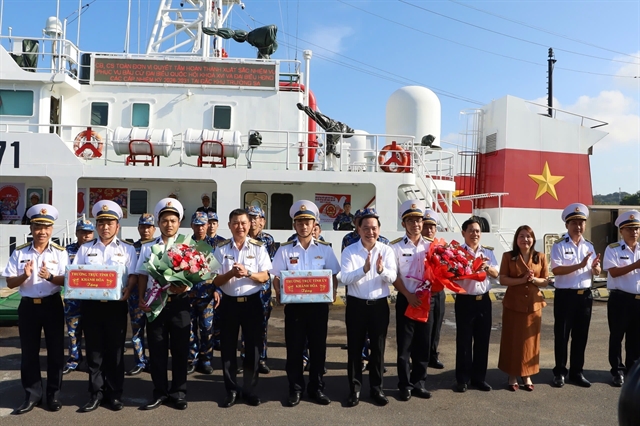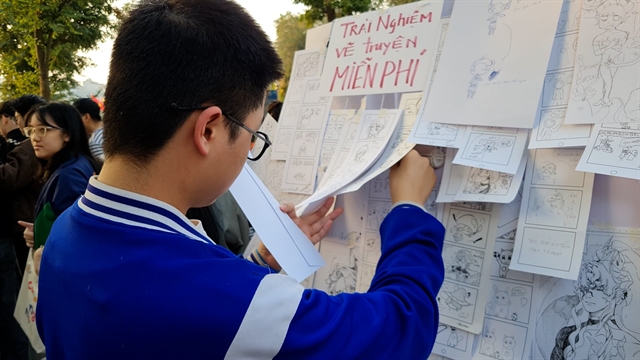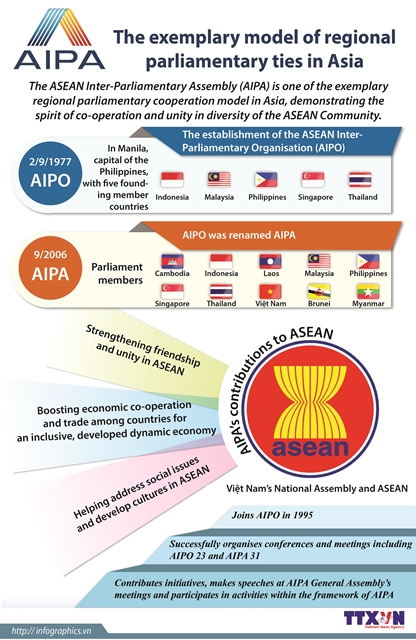 Politics & Law
Politics & Law


|
| Overview of ASEAN Inter-Parliamentary Assembly (AIPA). — VNA/VNS Infographic |
HÀ NỘI — The ASEAN Inter-Parliamentary Assembly (AIPA) had always been an effective forum for member parliaments and lawmakers in the region to openly and frankly discuss issues of regional concern.
Politburo member and Chairwoman of Việt Nam's National Assembly Nguyễn Thị Kim Ngân made the remarks in an article titled “Parliamentary Diplomacy for a Cohesive and Responsive ASEAN Community" released on the occasion of the 41st AIPA General Assembly that the National Assembly will chair via teleconference from September 8-10 for the first time in the organisation's history due to the COVID-19 pandemic.
In the article, Ngân wrote that 2020 held significant meaning for Việt Nam as the country had assumed three important positions: a non-permanent member of the United Nations Security Council, ASEAN Chair, and Chair of the ASEAN Inter-Parliamentary Assembly. These all created favourable conditions for Việt Nam to continue to reaffirm its role and international standing, but also demanded that Việt Nam contribute further to the maintenance of peace, stability and sustainable development in the region and the world.
According to the top Vietnamese legislator, the AIPA's 41st General Assembly and activities held within the framework of the AIPA Five Presidents 2020 both demonstrated the proactiveness, responsibility and substantial contributions made by the National Assembly of Việt Nam to the AIPA, while helping strengthen solidarity and leading joint efforts for the AIPA to support the ASEAN Community building process, with the central task in the current period being to overcome the adverse impacts of the COVID-19 pandemic, maintain economic development and ensure social security for all people.
The ASEAN Inter-Parliamentary Organisation (AIPO) was formed in 1977 in Manila by the Philippines, Singapore and Thailand, and has grown larger as more countries have joined ASEAN.
Since the 1990s the parliaments of Việt Nam, Cambodia, Laos, Brunei Darussalam and Myanmar have all joined.
In 2007, member states' parliaments agreed to transform the AIPO into the AIPA as a coherent and more efficient ASEAN regional inter-parliamentary organisation. The 33rd General Assembly – held in Lombok, Indonesia, in 2012 – marked the beginning of the AIPA as an inter-parliamentary cooperation organisation of ASEAN countries.
After 43 years of development, Ngân remarked that the AIPA today is “an open and effective forum for parliaments and parliamentarians of countries in the region to express their views and frank exchange on issues of mutual interests.”
The AIPA has issued many resolutions on important issues among ASEAN countries, thereby building trust and making an important contribution to creating a peaceful environment for the process of co-operation and development in all spheres, Ngân wrote.
The range of issues promoted by the AIPA is diverse, from strengthening ASEAN integration and globalisation, to the impact of these processes to peace, stability and sustainable development in the region.
Together with ASEAN, the AIPA has proactively proposed many measures to promote the implementation of commitments and agreements on ASEAN Community building, and assisted governments in implementing ASEAN decisions through the building of institutions and capacity building of member parliaments.
As a co-operative organisation of representative agencies for people in the region, the AIPA focuses on promoting co-operation to find solutions to social issues, cultural development, building of a people-centred ASEAN Community, and encouraging the preservation of ASEAN's cultural identity on the basis of promoting the values of each ethnic group in the region, she continued.
The AIPA gives emphasis to forging ties with partners outside of ASEAN – demonstrated via its annual dialogue mechanisms with parliaments of 12 observer members, including Australia, Japan, South Korea, Russia and the Europe Union, she wrote, adding that the AIPA appreciates solidarity, equality, and collaborated action at international forums to protect national sovereignty and independence, along with regional interests.
With its enhanced standing in the world, many states are looking to become observers of the AIPA, with Norway, Morocco, Pakistan and Georgia all submitting applications, according to Ngân.
Overcome challenges
The assembly convened as ASEAN continued to reaffirm close its cooperation and to strengthen its central voice for the maintenance of peace, stability and development in Southeast Asia, she noted.
ASEAN member states are attempting to carry out measures to control COVID-19 along with stimulus packages and policies to enhance post-pandemic economic recovery, and remain committed to opening up their doors in terms of investment and trade with further supply links to ensure social security.
The shift in policies of major global powers also constituted threats to peace, stability and co-operation in the region, Ngân noted, citing the cases of the East Sea (South China Sea) and volatile political situations in many countries.
In the current context, AIPA should continue to uphold the spirit of solidarity, maintain ASEAN's central role in resolving regional issues, comply with international law, and implement measures of preventive diplomacy, while promoting co-operation for mutual development as well as continuing to supervise and decide on budgets and necessary resources, and accompany governments in ASEAN for a cohesive and proactive ASEAN Community.
Bearing this backdrops in mind, the AIPA-41 will focus discussions on empowering female parliamentarians to ensure the jobs and incomes of female workers, parliamentary diplomacy for sustainable, peace and security in ASEAN, the role of parliaments in promoting ASEAN connectivity and economic recovery post-pandemic, and enhancing the role of the AIPA in building an ASEAN Socio-Cultural Community responsive to COVID-19.
According to Ngân’s article, the General Assembly would also hold an AIPA-ASEAN Dialogue on the impacts of the COVID-19 pandemic on the implementation of the ASEAN Community Vision 2025 on all three pillars.
The agenda of the AIPA-41, the topics discussed, conferences among female parliamentarians and an informal committee of young parliamentarians, along with resolutions of the General Assembly, are all connected to the theme of ASEAN 2020 "Coherence and Responsive" and efforts to prevent, combat and overcome the consequences of the pandemic, promote a safe recovery of economic activities, and maintain stability and development in the region.
At the 41st AIPA General Assembly, the National Assembly of Việt Nam proposed two important initiatives. First, organising an informal conference of young parliamentarians. The National Assembly of Việt Nam hopes that after this General Assembly, young parliamentarians will become an official mechanism within the framework of the AIPA General Assembly, creating a forum for young parliamentarians to have a more robust voice and make more effective contributions to address issues of regional concern.
Second, connecting and linking the AIPA's activities with the activities of the Inter-Parliamentary Union, associated with the implementation of the United Nations’ 2030 Agenda for sustainable development.
To realise this initiative, the National Assembly of Việt Nam successfully organised an online conference themed “Parliamentary Partnership on Educational and Cultural Cooperation for Sustainable Development” (AIPA ECC) on July 30 with the participation of the IPU Secretary-General and UN representatives.
With the success of this first conference, Việt Nam wished to create an annual AIPA forum to exchange and find measures to promote the effective implementation of the Sustainable Development Goals in the ASEAN region, the Vietnamese legislator wrote.
History has shown that during each development period, ASEAN had faced different challenges and difficulties, but the interparliamentary assembly and member states’ parliaments had always come up with appropriate measures to promote solidarity, unity and co-operation between states to together overcome those challenges and look forward to the future, Ngân remarked.
As AIPA Chair this year, the Vietnamese legislature pledged to do her best, and together with the support of member parliaments, to successfully organise activities during the year, making practical contributions to deepening the AIPA-ASEAN partnership, and enhancing co-ordination between legislative and executive branches to uphold connectivity and accelerate the construction of a peaceful, stable, safe, prosperous and happy ASEAN Community for all people, Ngân concluded. — VNS